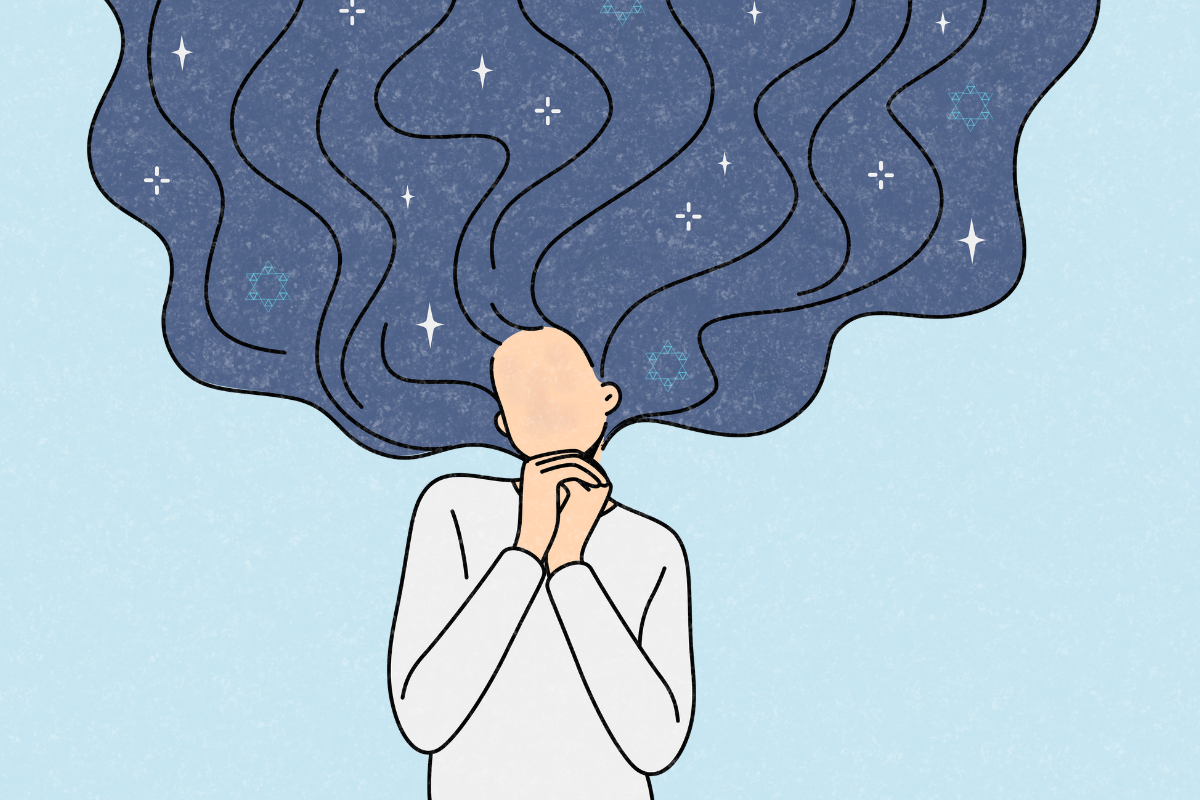One of the yearly rites of the Jewish calendar is almost upon us: that time of year when we see someone’s social media posts about High Holiday prep and think, “Wait, there’s only how many days left until Rosh Hashanah?”
On top of figuring out which brisket recipe you’ll try this year, during the month of Elul, the lead up to Rosh Hashanah, Jews traditionally participate in some sort of personal reflection — cheshbon hanefesh, if you’re into the Hebrew term — to prepare our souls for the High Holidays.
I love the concept of Elul. Though perhaps not as flashy as the holidays for which it paves the way, I find the idea of taking stock of my life and actions to be extremely refreshing — a month of therapeutic introspection to help me, when it comes down to it, be a better person in the new year. I’m a sucker for guided journals, meditations and other daily prompts that will help me identify some of my strengths and weaknesses of the previous year while pointing me to actionable ways I can continue to expand on my strengths, rectify major mistakes and minimize negative thoughts, actions and influences. It’s like a tiny bit of therapy every day. And who doesn’t love starting the morning with a good old shofar blast?
As with so many other things in life, though, I find that the gulf between concept and practice to be, shall we say, lacking, like a real-life inspiration versus reality Pinterest challenge. I buy the journals. Download the meditations. Find the most thought-provoking writing prompts. And then, something happens.
Life.
The last few jam-packed weeks of summer.
Back to school.
Another round of summer viruses working their way through my daughter’s daycare.
Work.
As a convert whose life is firmly rooted in the secular world, life doesn’t slow down to accommodate for the type of daily reflection I would like. In fact, it seems like everything speeds up this time of year, leaving me with less time and less emotional bandwidth to devote to my cheshbon hanefesh. That 20 minutes I set aside in the morning gets pushed thanks to a difficult school drop-off. Emails pop up in the afternoon, and by the time my husband and I have waged bedtime battles with our daughter, I’m a zombie ready to pass out myself. One missed day becomes a week, and by then I’m so annoyed at myself for bombing another Elul that I never quite get back on track.
As I’ve written before, though, I am a major advocate of meeting my Judaism right where I am. Especially as a proud Reform Jew, I know the immense benefit of practicing Judaism in a way that works with life as I live it day-to-day.
For me, this means a different method for making a meaningful Elul. As I inadvertently discovered toward the end of Elul last year when I couldn’t find ear buds for a long run, indulging in silence can be a deeply effective way to take account of my soul.
I’m the kind of person who is always listening to something: podcasts, music, podcasts, NPR, more podcasts (seriously, so many true crime podcasts). While these are things I enjoy, they have the unintentional side effect of always keeping my mind distracted from my own life. That day last Elul when I was forced to run in silence, I was reminded how freeing it can be to just let my mind wander: to actually pay attention to the world around me, an act that almost always leads my mind down paths of personal contemplation otherwise closed off when I’ve got headphones to lull me out of my own head.
Perhaps this is obvious to everyone but me, but I was surprised by how freeing it was to ditch the noise last Elul and just let my mind wander on my runs, walks, drives, and even when doing mundane tasks like folding laundry. Sometimes I’d give myself an Elul-themed prompt to think about during these times, but, more often than not, all I needed was to stop distracting myself and my attentions naturally turned toward the types of questions one might typically ponder this time of year. Folding my daughter’s small clothes, for instance, sent me thinking about how quickly she’s growing, and what I can do to better enjoy this stage with her instead of just wishing the days away. Paying attention to the beauty in my neighborhood on my runs — instead of listening to the details of a gristly murder podcast — helped me to appreciate everything I have. There is so much in my life that I take for granted on a day-to-day basis, and so much privilege that I need to better harness to help others.
I also found that my mind had more time to rest, so to speak, when it wasn’t in overdrive. I am by nature (and medical diagnosis) an extremely anxious person, prone to circular thinking and catastrophizing. However, it seemed that the more time I spent without my ear buds, the more relaxed my mind became. There was a time when podcasts and music were a way for me to escape the stress of my daily life (i.e. life at home alone with a newborn). However, giving my mind the freedom to relax left me in a calmer mental state in general. Turns out, the noise I was using to try and drown out my over-active mind was not the solution I thought it was: It was just compounding the problem.
Simple, subtle and easy, spending the month of Elul with fewer distractions is my way of finding practical meaning in a way that is both personal and — crucially for me at this point of my life — achievable. Though not the most orthodox method of marking the month, ditching my headphones is my way of freeing my mind to focus on what matters.








